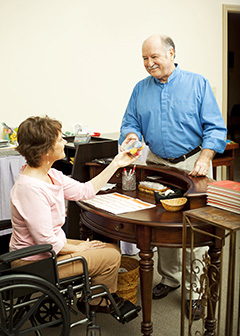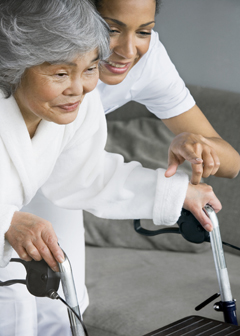Summary

| Quick Facts: Rehabilitation Counselors | |
|---|---|
|
$32,350 per year
$15.55 per hour |
|
| Master’s degree | |
| None | |
| None | |
| 129,800 | |
| 28% (Faster than average) | |
| 36,600 | |
What Rehabilitation Counselors Do
Rehabilitation counselors help people with emotional and physical disabilities live independently. They help their clients overcome personal, social, and professional effects of disabilities as they relate to employment or independent living.
Work Environment
Rehabilitation counselors work in a variety of settings, such as schools, prisons, independent-living facilities, rehabilitation agencies and private practice. Most work full time.
How to Become a Rehabilitation Counselor
Most often, rehabilitation counselors must have a master’s degree in rehabilitation counseling. Some positions require certification or a license.
Pay
The median annual wage of rehabilitation counselors was $32,350 in May 2010.
Job Outlook
Employment of rehabilitation counselors is expected to grow by 28 percent from 2010 to 2020, faster than the average for all occupations. Demand for rehabilitation counselors is expected to grow with the increase in the elderly population and with the continued rehabilitation needs of other groups, such as veterans and people with disabilities.
Similar Occupations
Compare the job duties, education, job growth, and pay of rehabilitation counselors with similar occupations.
O*NET
O*NET provides comprehensive information on key characteristics of workers and occupations.
Contacts for More Information
Learn more about rehabilitation counselors by contacting these additional resources.











